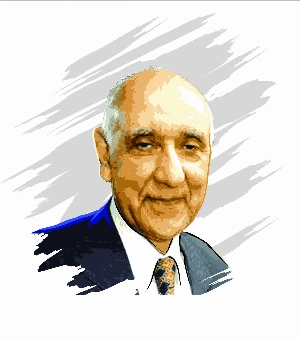Philippines President Rodrigo Duterte, the country’s first leader from the southern island of Mindanao which has a large Muslim population in the predominantly Catholic country, boldly pledged in his election campaign to bring peace to the country by removing “historical injustices” that had kept the country’s Muslims as second-class citizens.
It was a daring promise, considering that the Philippines has had tensions between Christians and Muslims from the very time the Spaniards conquered the Philippines in 1521-1565 and named it after King Philip. The Spaniards had killed or forcibly converted the Moors of Spain to Christianity and purged Spain of Islam and Muslims.
When they encountered Muslims in what became the Philippines, they called them Moros and treated them with the same hostility that they had displayed towards the Moors of Spain.
The situation eased somewhat when the Spanish-American war of 1898 resulted in the Philippines, and some other Spanish-controlled territories, passing under American control. Americans abolished slavery and polygamy but did not try to convert Muslims by force to Christianity.
This resulted in the Muslims accepting American rule with fewer reservations than they had against the Spanish. They resisted the Spaniards, but signed peace treaties with Spain in order to preserve some rights in Sulu, Lanao, Cotabato and Basilan provinces. When the US ousted Spain from the Philippines and took over the country, Muslims faced less discrimination from the government. But they encountered discrimination from their fellow Filipinos, most of whom had embraced Catholicism and had little respect for Islam or knowledge about it.
When I went to the University of the Philippines as a student in 1953-54 even a professor of mine ridiculed Islam and polygamy. I explained to him the context and told him polygamy was more civilized than having a wife and betraying her trust by having numerous mistresses who enjoyed neither rights nor dignity, as was the case in some countries.
I met Muslim leaders of the Philippines, principally then Congressman Domocao Alonto of Lanao, his brother Madki, Congressman Sultan Amilbangsa Omra of Sulu, Datu Mamintal Tamano, who was with me at the University of the Philippines, and some others. They treated me with incredible affection and invited me to spend my vacations with their families. Some Syrian merchants, who had settled in Cotabato, also invited me to spend a few days in Ramadan with them. I was stunned by the beautiful recitation of the Holy Qur’an by Muslim women, but I also noticed that at that time their knowledge of Islam was rudimentary.
I was received with much love partly because at that time there were very few embassies of Muslim countries in the Philippines. The British Legation in Manila told me I was the only Pakistani in the whole country. A few months later, more Pakistani students came. Later, Pakistan and some other Muslim countries established embassies in the Philippines and gradually stronger ties were established. That broke the isolation of the Muslims of the Philippines and they developed strong ties with Muslim countries and institutions.
Muslims in the Philippines, though ethnically diverse and living in different parts of the country, are concentrated mostly in the provinces of Cotabato, Lanao and Sulu. Congressman Alonto became one of the most active Muslim leaders. He visited Pakistan. He and I, and also Congressman Omra, became good friends. Alonto’s father, the late Sultan Alauya Alonto had fought for the country’s freedom with distinction.
The Philippines governments at that time were not sympathetic to Muslims and dwelt on the “Moro problem,” as did the media. But Muslim leaders, led by Alonto, Omra and others emphasized that the only problem was the discrimination against Muslims because of their faith. They made clear that they were as devoted to their country as other Filipinos and did not see their faith as an obstacle to their full participation in the affairs of their country. In fact Muslims had fought for their country’s freedom with dedication.
However, even in 1953-54, there was violence, especially in Sulu. Some Muslim rebels had moved to the jungle from where they attacked government forces.
Now the Muslims of the Philippines are strengthening their position within the country and also developing productive relations with Muslims outside. Manila has four mosques. An Islamic Studies Institute has been established at the University of the Philippines. A historic peace agreement ended the decades-long war between the Philippine government and the Moro Islamic Liberation Front.
President Duterte is sympathetic towards giving more autonomy and full rights to his Muslim fellow countrymen, especially in provinces where they are in the majority, such as Bangsamoro (meaning Moro nation) in Mindanao.
Although there is bias against Muslims in some segments of society it looks like President Duterte’s leadership will build their country into a model of democracy, freedom and harmony for all Filipinos.
